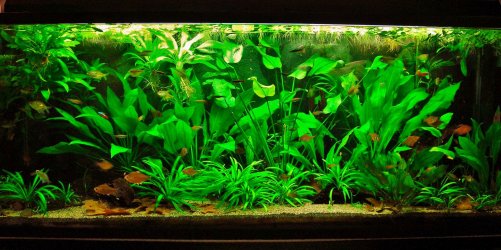Hi, I've been searching for the thread on rocks but can't find it so apologies for the question which I know is answered elsewhere.
I have very soft water so my pH is 6.4 and my gh is 3. I am looking to put granite based fossil bookends in as I believe the granite will leach carbonate and help increase the gh.
Q''s - a/ am I correct in thinking this and b/ anyone with any thoughts on why this would be bad to do?
Thanks in advance for your help,
I have very soft water so my pH is 6.4 and my gh is 3. I am looking to put granite based fossil bookends in as I believe the granite will leach carbonate and help increase the gh.
Q''s - a/ am I correct in thinking this and b/ anyone with any thoughts on why this would be bad to do?
Thanks in advance for your help,



